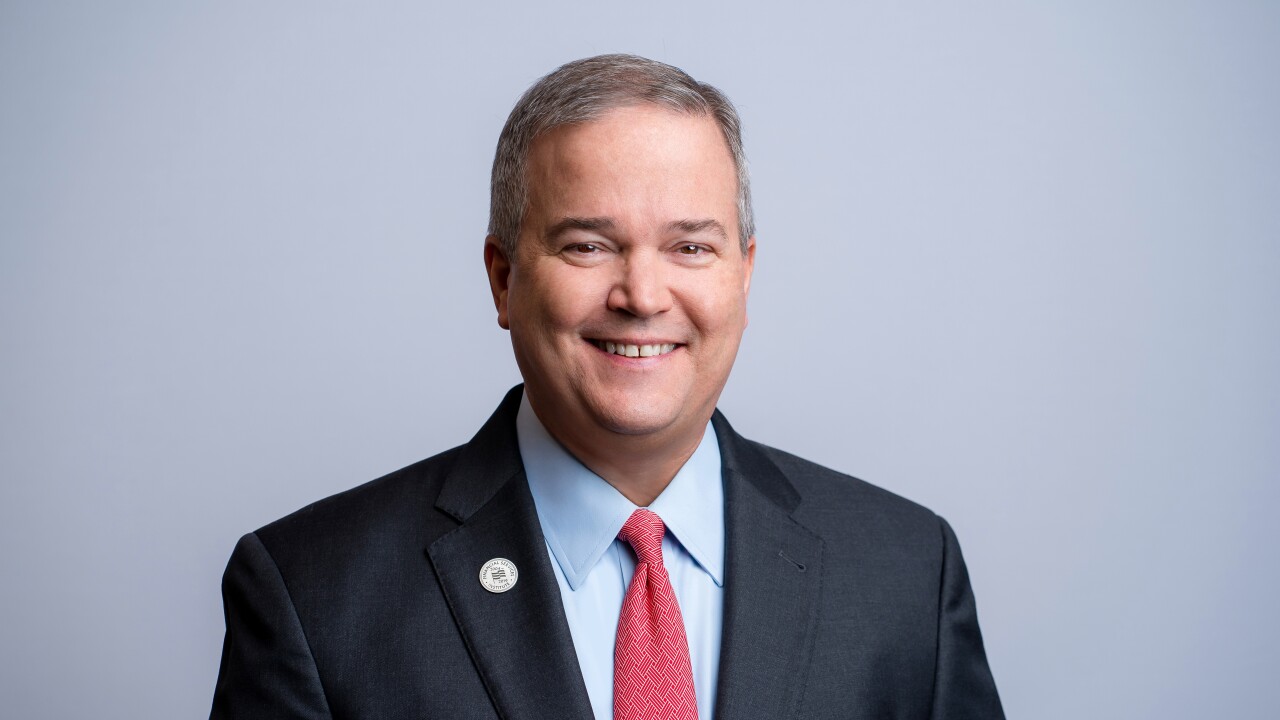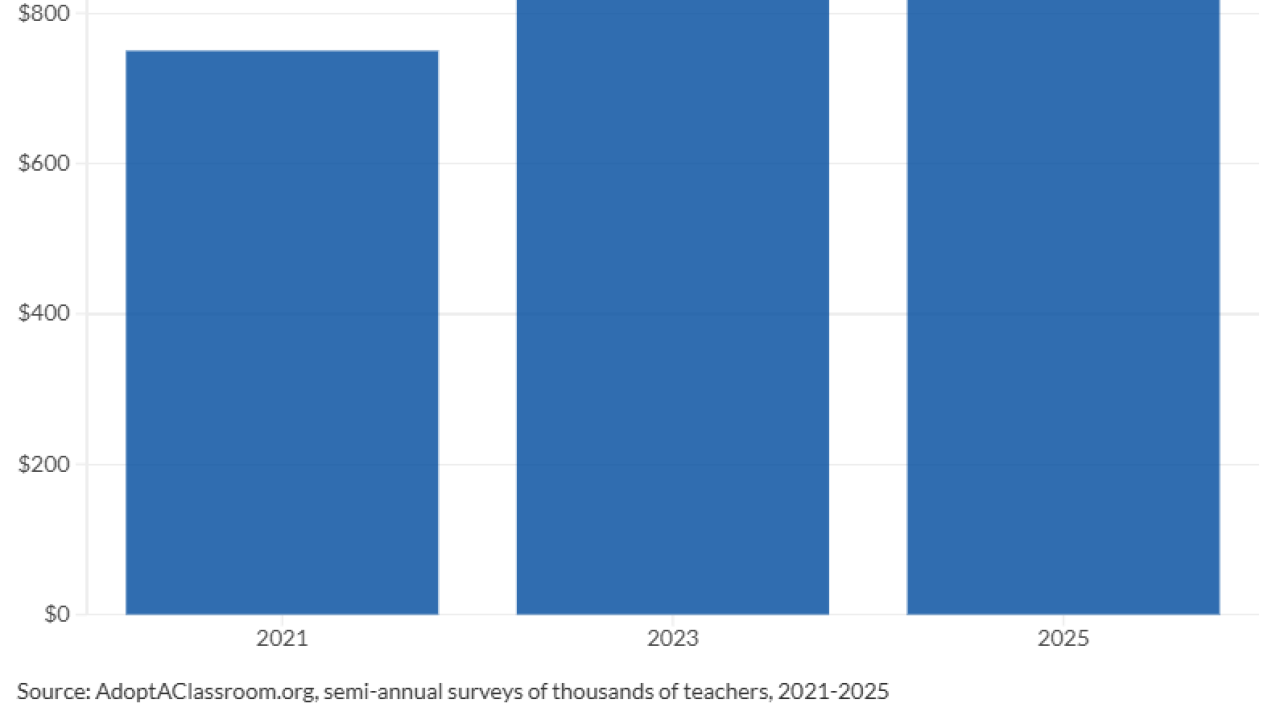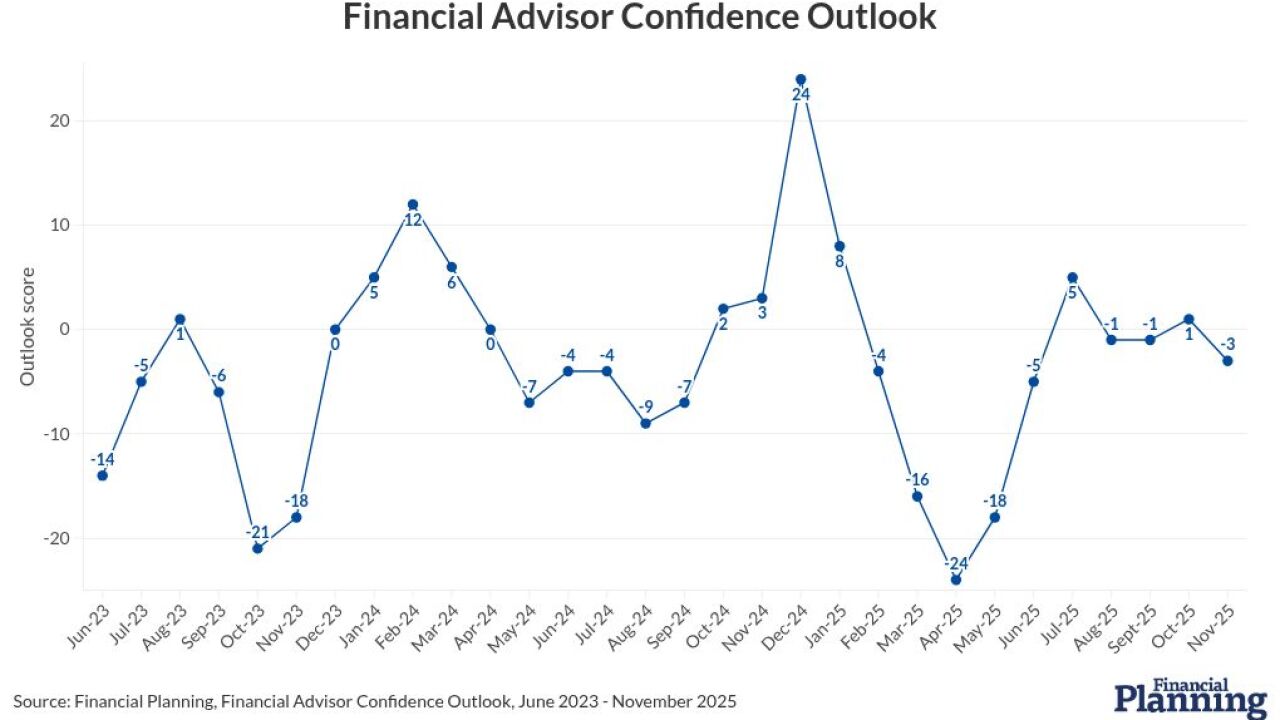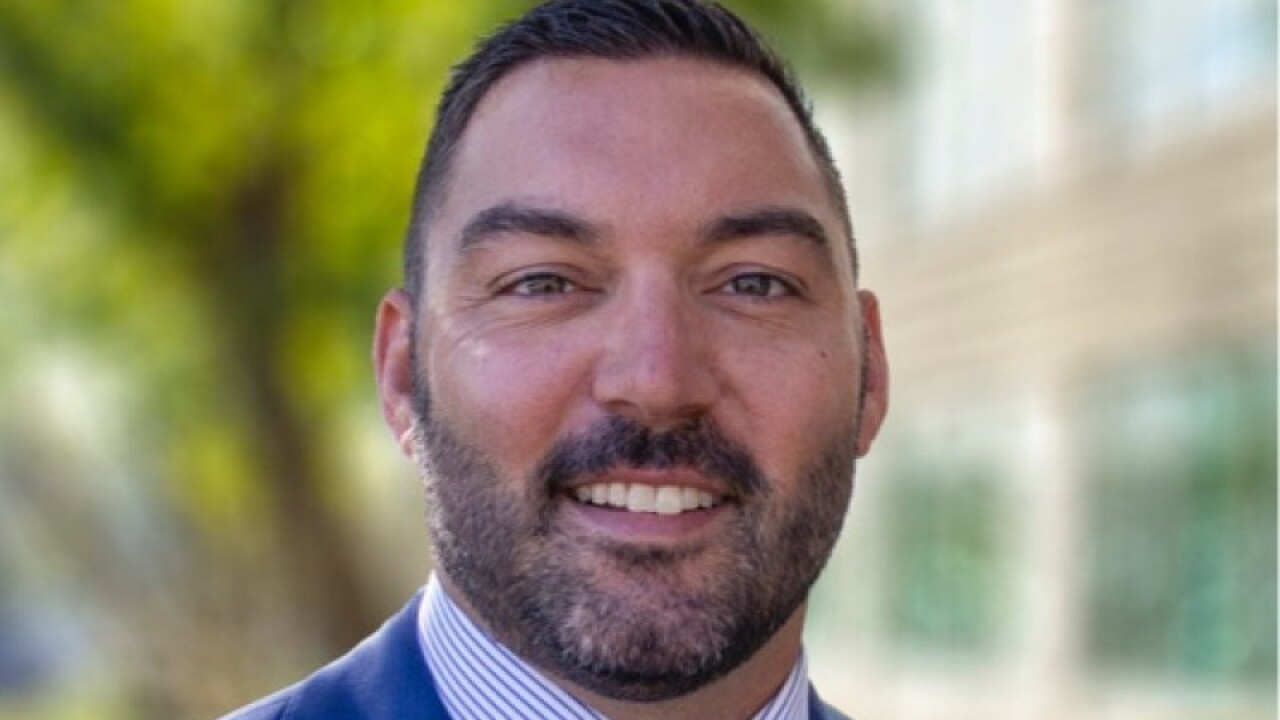Erika Karp, founder of $1 billion RIA Cornerstone Capital Group, has three words for any advisor wondering about the value of conducting a sustainable investment analysis on client portfolios: the Weinstein Co.
"It's over," says Karp of the previously highly profitable studio that produced some of the most critically acclaimed films in recent Hollywood history and is now on the verge of bankruptcy, felled by accusations of rape and ( harassment from a raft of women against co-founder Harvey Weinstein.
"It’s an example of a complete breakdown of governance and the ultimate example of losing your license to operate," says Karp, whose firm screens companies for governance problems, as well as environmental and social ones.

Sophisticated new tools that take governance lapses into account, based on indicators such as early news accounts, are now identifying potentially troubled companies — sometimes long before serious scandals emerge, Karp says. The Weinstein Co.’s collapse — and the likely wipeout for equity investors — should be seen as a cautionary tale for future bad actors and invoked by advisors as reason to ramp up their sustainable analytical skills, she says.
Karp says more research is needed to fill what she sees as an “intolerable void” in understanding the fundamental risk of sexual and gender-based violence (known as SGBV) in the workplace. She has built a registered investment advisory firm tightly hitched to the premise of this trend.
Based on a pure sustainable investing play, Karp has grown New York-based Cornerstone to $1 billion in assets under management in little more than three years since it was founded.
On Wednesday, the day before International Women's Day, Karp participated in the Nasdaq’s closing bell ceremonies as part of a global effort to promote gender equality. More than 60 stock exchanges around the world participated.
In her remarks, "I said that, for progress, we need to make people just the right amount of uncomfortable," Karp says, while allowing later that the Weinstein scandal qualifies as "a lot of uncomfortable."
Day in, day out, however, Karp's pitch to investors skews more positive than negative.

Cornerstone's business model is based on directing client investments toward “a more regenerative and inclusive economy," according to its website. And that's without giving up anything in investment returns, says Karp, a former head of global sector research at UBS, where she developed an expertise in sustainable investing.
"I am thrilled to do work that I deeply believe in," Karp says. "For someone like me, economics is beautiful. … Capitalism can be repaired and be beautiful."
Karp brings unique credibility in staking out such a claim. Cornerstone boasts clients like feminist icon Gloria Steinem's Ms. Foundation for Women and the
When it comes to the move toward greater inclusion throughout the economy, Karp isn't just bringing her banking credentials, but also her personal life to the subject.
Karp came out 25 years ago on a Wall Street trading floor to a couple close friends, "when it wasn't really done," knowing the news would fly around the room, and discovered that "all the kind of psychic energy that I was wasting by being closeted was just really bad. It was unproductive. By the time I came out I was more energized, more creative, more comfortable and more productive. It was a wonderful thing," she says. "This goes to making people just the right amount of uncomfortable. You talk about yourselves, and people learn. People learn to become empathic. It becomes … I'm not going to use the world normal. I'm not sure what word to use. It becomes just authentic, that's what it is."
Especially meaningful to Karp is when people describe the impact of seeing her with her family, such as a neighborhood shopkeeper who approached her in tears. "Seeing us, I think it gave her some hope," Karp says. "The isolation globally for people who are gay, I think that's more the norm than in New York or San Francisco or wherever. Isolation is a terrible feeling. Human beings are not supposed to be isolated.”
-
Here's how independent advisors can build a culture of zero tolerance for gender discrimination.
January 11 -
One way to effect positive change is by helping clients invest through a gender lens, says ThirtyNorth Investments exec Suzanne Mestayer.
May 3 -
It’s an uncomfortable topic, especially after a bruising round of accusations in the 1990s.
January 19 -
None of the FP50 are close to equalizing their ranks of men and women.
June 25
At Arabesque Partners, a global asset manager, that uses quantitative analysis to select sustainable companies, Chairman Georg Kell says Karp "has great affinity and sensitivity for different lifestyles." He describes his "deep appreciation of her ability to cross the lines. She is doing it with a lightness and an openness that is disarming. It's a real human quality."
That kind of openness represents the future of the finance industry, Kell believes.
"The nature of banking is changing," he says. "Look at millennials. They don't buy that crap of secrecy anymore. They know it's just a pretense to justify high fees. They are all about transparency and directness and looking at things for what they are."
Kell helped put this kind of transition into motion in 1999 when he founded the United Nations Global Compact, a corporate sustainability initiative "proposing to business that they should pay attention to human rights, environmental and social issues," he says. To date, 9,678 companies from 161 countries have signed on.
Karp’s firm is a member of the Global Compact as well as an advisor to the Omidyar Network's KnowTheChain initiative and to the (slowly winding down) Clinton Global Initiative. She also sits on an advisory council for Harvard Business School's executive education program on sustainable investing and is a founding board member of the Sustainability Accounting Standards Board.
Cornerstone's value proposition is based on its claim of combining new and improved approaches to ESG investing with personalized service for high-net-worth clients. The emergence of so many new products and funds can be confusing for advisors and clients alike.
"It is a complex area. There are no dogmatic rights and wrongs," says Ben & Jerry's CEO Jostein Solheim, a friend of Karp's who speaks frequently on impact investing. "That's where there's a shift where people like Erika and Cornerstone are really leading in that space in showing clients really trackable concrete and quantifiable impacts to their investment strategies."
Owned by global consumer products giant Unilever, Ben & Jerry's aims to reduce the carbon emissions needed to produce a pint of its ice cream by 40% by 2025, Solheim says. It's this kind of specific impact that Cornerstone pays attention to.
Karp argues that the value of ESG analysis is that it brings far more data to bear in investment research. "It didn't take me long to figure out that, 'Oh my god, I've always been a sustainable investor,' " Karp says. "I see ESG analysis as simply better research. It's a better investment discipline. Wouldn't you rather know more than less about a company?"





